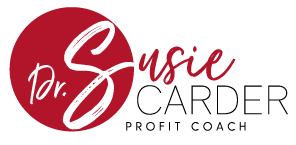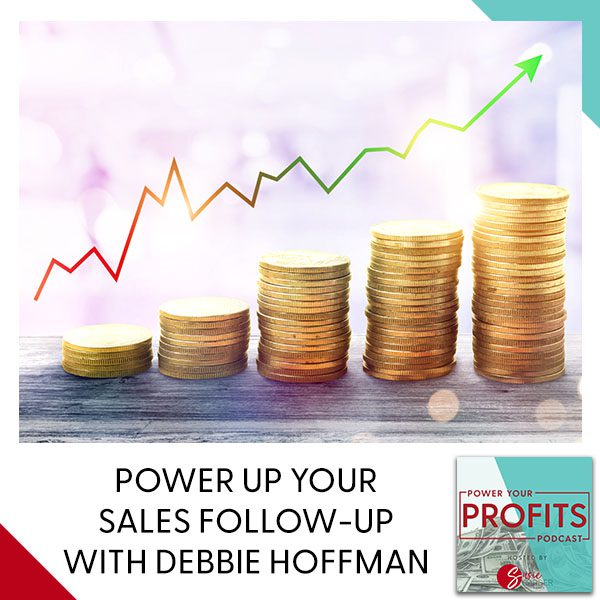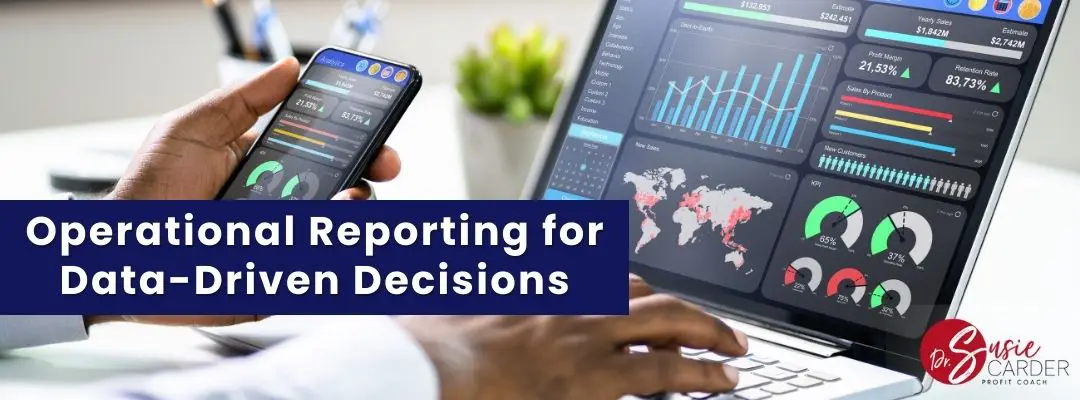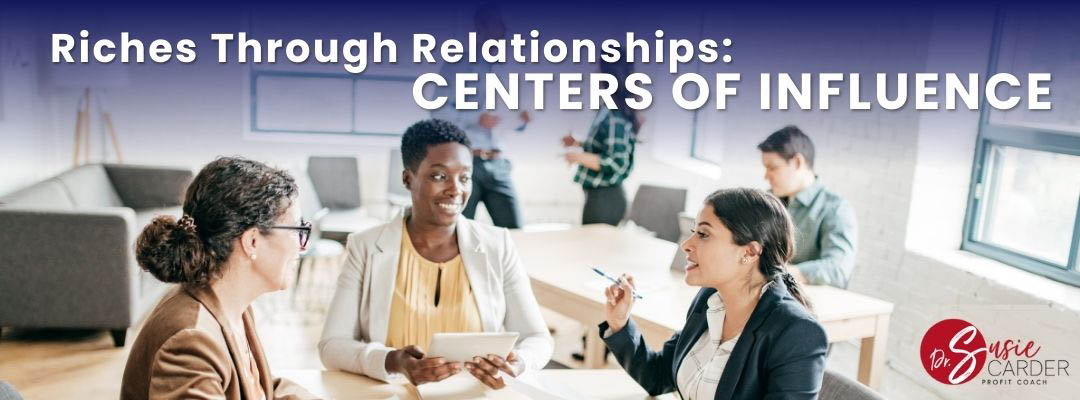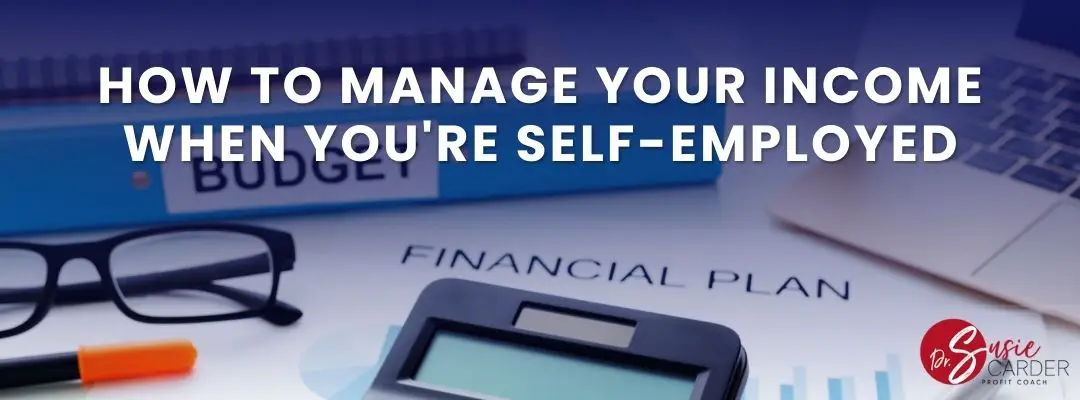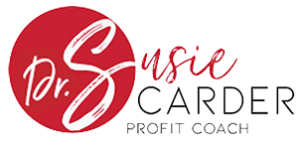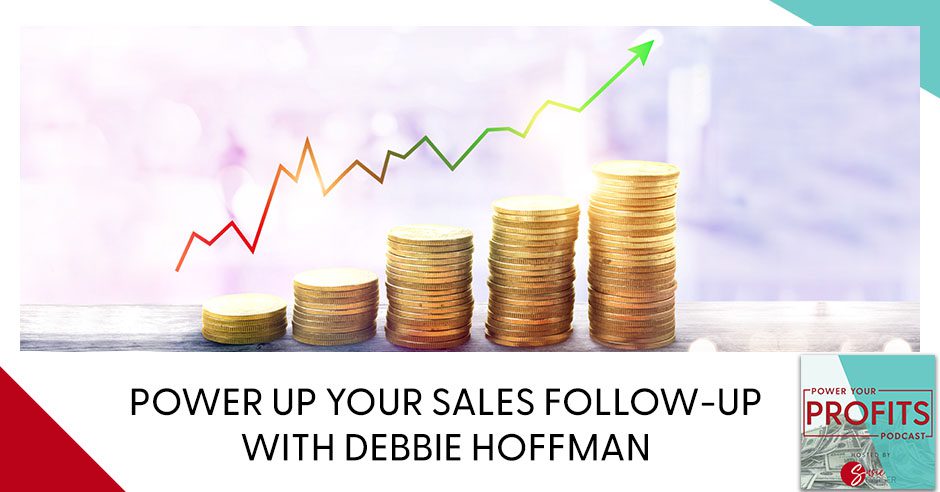
Entrepreneurship is difficult, especially if you don’t speed up your follow-up. Sales in the entrepreneurial world are very different from wall street—the pushy style of selling no longer works. You actually have to build connections and relationships with your clients. You have to be heart-centered so that you can get those follow-ups and those referrals.
Join Susie Carder as she talks to Debbie Hoffman about her sales follow-up strategy. She is the CEO and Founder of Power-Up! Your Follow-Up. Learn how to be prepared for everything you do. Know how to get referrals easily. Discover how to build JV partnerships. Prioritize your life so that you don’t have to choose between money and happiness. Also, take Debbie’s Power-Up Biz Quiz to learn more about your strengths and weaknesses.
—
Watch the episode here
Listen to the podcast here
Power Up Your Sales Follow-Up With Debbie Hoffman
I am excited to bring you my guest. I know I’m always excited, but Debbie Hoffman is a heart-centered sales and follow-up strategist, expert, and Founder of Power-Up! Your Follow-Up. How perfect is that? She’s a relationship-driven coach and works with network marketers and heart-centered coaches. She sees potential clients and their income slipping through their fingers and cracks because they don’t have a reliable sales system and follow-up. She has a formula that supports you in getting more ideal clients to say yes. Please welcome my guest, Debbie Hoffman.
—
I am so excited, Debbie. Thank you for being here. This is one of the biggest challenges that I see for entrepreneurs ongoingly. Everybody needs it, but we all resist it. Let’s talk about who do you serve? What’s your magic? What makes you different than every other person out there?
First off, thank you so much for having me. It’s wonderful to be here with you. I love being around you. I serve heart-centered coaches, consultants, people in network marketing, and all sorts of entrepreneurs. It’s not so much what they do, it’s who they’re being. They need to be heart-centered and conscious. Energetically, I feel a connection to them. They’re not salesy, pushy and aggressive people. I work with financial advisors because of my Wall Street background. They love working with me because I get their business. I work with realtors, but they’re all heart-centered and are on a mission to make a difference in the world. It’s the way they show up that is what it’s all about.
What makes you different? Is it the uniqueness that you’re not pushy? You’re not doing manipulation strategies. I always tell clients, “You could use this power for evil or good.”
What makes me unique is I am teaching a heart-centered sales and follow-up system. It’s not about being salesy, pushy and aggressive. It’s not all about being attached to your agenda and what you want to have to happen. It’s not about you being attached to your results. It’s seeing how you can show up in service to people and see how you can support people. When you look for those JV partners or power partners, you connect with them and start collaborating, doing stuff for them, helping them, referring people to them, and supporting them in whatever way they need. That’s where the relationships get created, the trust. That’s where the referrals and the ideal clients start coming in. That salesy, pushy, aggressive approach doesn’t work anymore.
Why are you so passionate about this? Why did you pick that niche? There’s definitely a niche. You’re very honed in, which is awesome.
There are a lot of sales coaches out there. I teach people the whole sales process, but a lot of sales coaches don’t teach the follow-up, which is an integral part of the sales process. What happened was I was working on Wall Street, I was super successful there, and decided to retire early and be a mom and be at home with my family.
During that time, my husband was a high-end custom home builder in the San Francisco Bay area. When the market crashed, it totally wiped us out. We lost our home and all of our properties. We went into a bankruptcy foreclosure. It was a nightmare. I was going out networking at that time and trying to hide what had happened, and not realizing that the desperate energy was coming through.
I’ll never forget, I walked into this networking event and started walking over to some women who I knew, and they turned around and walked the other way. I was like, “What is going on here?” I had that a-ha moment that what I learned on Wall Street worked well there. I was paid so well to be salesy, aggressive, assertive and relentless, but in the entrepreneurial world, it wasn’t working. I realized I needed to show up in service. Let go of my agenda, the attachment to the results, have fun, see how I can help people, and everything turned around. I went from 0 to 6 figures in 14 months with a brand-new coaching business.
The reason I’m so passionate about this is because of a couple of things. One is I came this close to getting a job and selling out on my dream. I never want anyone to have to choose between money and their happiness. People are so good at what they do. Most people are genius at what they do. They can help people, but they don’t know how to get those people to the point where they sign up to work with them, and they could help them. Like you were saying, the sales piece, people suck at, they struggle with it. That’s what breaks my heart because I don’t want people to say, “If I don’t get this business going quickly, I’m going to have to go back to a job.” That’s why I’m passionate about this.
[bctt tweet=”What you learned on wall street doesn’t work in the entrepreneurial world.” username=””]
The reason I chose this niche, I didn’t choose it. A woman who I was following up with my health and wellness business prior to being coached called me one day and said, “You’re amazing at follow-up. You need to share your system with me.” I was like, “What are you talking about?” Fourteen months I followed up with her, and she finally became a client. We had a conversation and she said, “You have got to do something with those. You are brilliant at it. People are struggling with this. You have a gift, and you need to share it.” That’s how it happened. I seriously wasn’t looking for this.
We’re soul sisters. I lost everything too. I feel that pain. It was like, “I felt the knife with you.” It teaches you different lessons. What was the biggest lesson you learned in that?
I was young and making a lot of money. I wasn’t careful and cautious enough. I was taking too many risks. That’s it. Now especially as I’m older, it’s about being more conservative and being more mindful, and making decisions more carefully.
When you’re young, you do take more risks. That’s the financial strategy. You’re young, you’ve got many years. I was 45 when it happened. I’m like, “I don’t have twenty years to amass this. I have to be more conservative.” You stopped all the frivolous spending, “What do I need to do? How do I rebuild this?” The great thing is when you build it once, you can do it again. It’s such a huge learning curve because you’ve already done it.
You shared something that resonated. It is something that I learned as well. I was such a spender. At 21, I was making $500,000 in the ‘80s. That was a lot of money. I bought whatever I wanted. I did whatever I did. I had my 401(k) through my Wall Street company, but I could have saved a crap load more money than I did. That’s what I’ve learned. I don’t need all this stuff. Stuff is not going to make me happy. I need to be more mindful of saving for my retirement.
Hopefully, you hear that because I find sometimes you have to go through that and get all the things and realize there’s still an emptiness or more things to buy. I had a birthday and my man is like, “What do you want?” I’m like, “Nothing.” We pretty much have whatever we need. I don’t need anything or want anything, and that’s a good place to be in. It’s also like, “I don’t know. I want to invest more. I want to buy another piece of property.” Those are the kinds of things that excite me now.
Things change.
The biggest challenge you see with entrepreneurs that are struggling in sales and follow-ups, what is that?
I’ve narrowed it down to four key challenges. There are tons of them, but these are the four ones I hear a lot. One is people tell me they’re not prepared, they just wing it. They’re not prepared before a sales conversation, a networking event, or a meeting with a potential partner. The second is that they don’t have systems in place to keep track of their business. They have notes all over the place or spreadsheets or pieces of paper.

The third is that they’re not consistently asking their clients for referrals and are sitting on a gold mine. The fourth is that most entrepreneurs, especially when they’re new or they’ve been doing it for a few years, they’re doing everything on their own. They’re not leveraging the power of creating JV partner relationships or power partner relationships. They’re doing their business solo. Those are the four key ones.
Let’s drill down a little bit or unpack those. That first one, not being prepared or winging it, what’s the essential that I have to have ready?
There are many stages in your business that you need to be prepared for, but I’ll share one that I see as, “It’s one of those big ones,” and it’s preparing before you network. I find that a lot of people go to networking events unprepared with what they’re going to say when people ask what they do. What happens is they hose them down with too much information, and people are backing off like, “Get me out of here.” This happens to me all the time when I was networking in person.
They also go with, I wouldn’t say the wrong intention, but I would say an intention that’s not as effective. They go looking for clients and try to sell their stuff. I work with my clients to create a very powerful message so that when people ask what they do, they’re leaning in and saying, “How do you do that? Tell me more.” They want to know more about what you have to offer. Instead of being repelled, it’s compelling.
To look for partners when you network, don’t look for clients. Look for people you can partner up with because you’ll end up getting so many more clients when you have that approach. Those are two ways to prepare for networking. In terms of preparing for a discovery session or enrollment conversation, I was working with a client who didn’t have a process in place. Whatever question came to mind, she would ask. She had no roadmap. She’s like, “Whatever.” Her conversion was very low.
I helped her prepare a step-by-step process of what to say and transition into inviting people to work with you. The next week, she had two enrollment conversations, and both women signed up to work with her. She brought in $14,000 from two sessions. Her conversion now has gone through the roof. Those are two areas where people need to focus on being prepared.
I use a script. I’ve been using the same script for many years. Even though I know the script, I still have to pull it up because I’m a coach and I’m going to start coaching. If you haven’t earned the right to be coached, I’ve got to be quiet. I’ll coach you until you sign up for a program. People think, “I don’t want to use a script.” It works. I’ve been using it for so long to keep me focused.
It’s not like you’re being robotic and reading something. It’s like, “This is the next question. This is the next thing to ask. This is how I transitioned into the next part. This is how I transitioned into making the invitation.” It’s a roadmap.
Let’s talk about the next one, no systems. What’s the most important system they have to have? I know they need them all.
[bctt tweet=”When you network, don’t look for clients. Look for people you can partner up with.” username=””]
They need them all. The most important is a CRM, Customer Relationship Management system. It’s amazing to me whenever I speak and the majority of people don’t have one. I’m like, “How have you ever gotten to where you’ve gotten in your business? How have you even achieved the success?” In spite of themselves, they’ve achieved some success, but as your business grows, it’s impossible to keep track of all these people in your head or have these Excel spreadsheets or notebook pads or slips of paper. You can’t do business that way. It’s very inefficient.
Do you have a favorite one for sales?
People always ask me that. It depends on where people are at. If somebody is super brand new and they need a CRM, they don’t need an email marketing system. I have all these on my website under my Resources tab. There’s one called Less Annoying CRM. It’s super affordable and easier to use. For people who are further along but they’re not where we are yet, but they need the email marketing system, the CRM ActiveCampaign has worked well. I have links for all those things on my Resources tab. There are lots of them that I’ve vetted, and it’s different for everybody.
It’s a custom solution.
Everybody has got different needs and things that they’re going to use it for.
Number three is one of our magic spots. Three and four are one of the things we leverage. Forty percent of our new business comes from referrals. We do referral campaigns. We’re always asking for events and students. Let’s talk about that. What’s your hack for us to follow?
First of all, people aren’t asking for several reasons. I’ve heard they don’t want to be pushy, “I’ve already gotten this person to become a client. Now I’m going to ask them for a referral?” or they don’t want to come across as desperate. Those are two key issues. I want to help all your readers or your community have a mindset shift around asking for referrals, and I’ll share the half.
Your clients love to give you referrals. If you provide great service or a great product, and they’ve gotten benefit from it, they’ll feel so good to refer their friend or colleague to you, who also will get great results. It’s a win-win-win. You have a new client. They feel good that they referred somebody, and your new client is benefiting. We need to know how to ask when to ask, how to train our clients on what to say on our behalf, and how to give us the referral.
I’ll focus on one of these. All of those are important. I don’t know about you, Susie, but when someone wants me to refer someone to them, I don’t have time to type up an introduction. I don’t know what to say about them. I have a template that I give my clients that they create their referral language to give to their clients and their partners, super short and sweet. I recommend that they keep a Google folder called Referral Partner Language, and document for each of their partners.
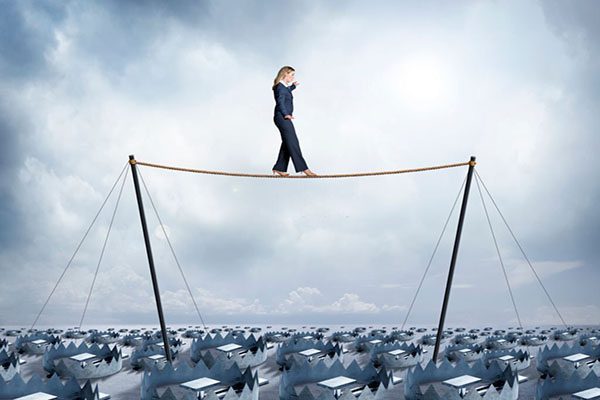
They copy and paste, add whatever it is personally that they admire and enjoy about that person, and off it goes. You’ll all get many more referrals if you give people the language because they’re not going to do it on their own. If they do, it’s not going to be as powerful as what you would say because no one knows what you do better than you and can explain it better than you.
We’re trying to get through it. I told Debbie, “I do this. Let me do it.” I love that. Let’s make it easy. Turnkey, make it easy but making me work for your business.
I can make it easy for people. My clients are getting so many more referrals. I have one client because of the entire referral strategy I shared with her. She has one referral partner that in 2021, referred $100,000 in business. She wasn’t even sending out emails and promoting launches or anything like this. My client does hypnotherapy, life coaching and energy work. It was people referring to the old-fashioned way. That’s pretty good.
Number four, I love this one. I paid a partner $250,000 when I launched this brand. It was my first experience with affiliates. The funny thing is I wrote her a check for $250,000, and something in her head was like, “I want that $250,000.” I’m like, “You didn’t have to do any work for that. That was a love check.” Funny people are, but it works. Let’s talk about joint ventures. Let’s talk about the importance of that. What can you share?
It is so much easier when you partner up with people who you like, and there’s good energy between you, who have similar clients like you, but they’re not in competition with you, who can promote what you do either through email, which is one way. Email open rates have dropped, and a lot of people are not looking at their emails, but it still works. What I’ve created is something very unique that I’m teaching to my clients, which is a list build interview swap process.
Instead of hopping on Facebook Live and interviewing each other, and you don’t even know who’s listening, we create a system where they get onto your list, and you can follow up with these people. They’re there with you on Zoom. They’re asking you questions and connecting. It’s a great way to create great partnerships and help your JV partner. They’re helping you, and you’re having fun doing it. You’ll have many more clients that you love to work with showing up. Your list will grow with more ideal clients. It’s not about the numbers on your list. It’s the quality. Are they your ideal clients? Are they even ready for what you’re offering?
That’s been a fabulous strategy. I love it. I’ve been doing it for a few years now. With one interview, I was doing beta for my Profitable Networking Formula. Five people signed up for it from this interview on the spot. One person went on to work with me one-on-one. All-in-all, I brought in $14,000 or something like that from one interview.
That’s a great way to monetize. Don’t just do the interview. Let’s monetize the interviews. We’re spending our time.
People are doing all these interviews and nothing is coming from them because they have nobody to follow up with, and nobody is showing up and there with you. People are craving connection. They want to know that you care about them and are interested in them. When you connect and they ask questions, and you’re communicating and interacting with them, it builds a connection. Plus, you have instant credibility because your JV partners invited you into their community to interview you.
[bctt tweet=”Emailing is important, but it’s a lot more impersonal. You have to really connect and interact to build that trust.” username=””]
Instant trust and credibility, and you’re way further up along in this process of people saying yes to working with you, and you do it that way. Emails are definitely important, but they’re a lot more impersonal. You have to do both. People are trying to build their businesses on their own, and it’s way too hard and frustrating. It’s overwhelming and exhausting.
I feel like I’m a lonelypreneur. Nobody cares. It’s me. Now I’m like, “Debbie and I are aligned. We have the same mission.” There are different niches but the same mission. It’s much more fun.
I have one client who I’ve been working with one-on-one. She does diversity training for companies and works with women who are transitioning from a corporate into their own business. She was doing webinars and inviting people from her list. We talked about this whole concept. We created a strategy, and she had a launch and had her JV partners promoting for her. All these people showed up to her webinars. She said, “It was so much easier. I worked so hard. I met all these new people who became clients.” We need to be partnering up.
If you’re not ready for the JV partner world, don’t worry about it. If you’re a power partner and not going to be sending out emails and doing massive promotions for people, that’s okay. You can still refer people back and forth to each other in a typical one-off way. I don’t want people to feel threatened like, “I’m not ready to have JV partners.” It doesn’t matter what level you’re at. You can still support each other and refer. It’s how you do it, whether you’re sending out emails and promoting a launch or if you’re supporting people one-off. When you do these interviews, you can do this no matter where you’re at in your business. It works no matter what. It will help you grow your list if your list is small.
There are many great trainings out there on how to joint venture. Start there because there is a system, and you’re very organized. What I love about you is your organization. Let’s talk about the systems you have in place. Can you tell us what that looks like for you? We’re both little organized geeks. I wasn’t always this way. I had to learn because I found my life became so much easier the more organized and the more systemic I got.
I have OCD tendencies. When I have something that needs to get done, I have to get it done. I don’t like stuff being unfinished hanging out there. I don’t like the way it feels. I prioritize what needs to be done first. I’m creating this whole new workshop, “What do I need to do first? When does it need to be done by?” I’m not getting distracted by emails or text messages. I make an appointment with myself in my calendar, work on the workshop, and do it.
That’s like the best productivity hack is to make an appointment with yourself, put it in your calendar like you put a put in your calendar and appointment with a client or a potential client. Don’t let anything get in the way, and do what you said you were going to do during that time. You’ll be much more effective and productive. Don’t be checking emails a gazillion times a day. Pick a few, maybe in the morning, afternoon and evening before you finish your day to check emails. I struggled with that.
They are so distractive like they have the dinger on when it comes in. Turn the dinger off.
I do not have a dinger on. You need to prioritize what needs to be done first, create that timeline, and stick to it.

I know business is a roller coaster. Many entrepreneurs in our community are struggling because of COVID and the economy. Is there going to be a war? There’s a food shortage. There’s so much negativity all around them. What would you say is your secret sauce in this whole period? If you look at the last few years, we’ve all had to pivot our businesses. The businesses that have thrived and survived are the ones that pivoted quickly. They said, “We’ve got to do business different.” What has been your strategy to grow and stay in action?
Fortunately, my business was an online business, so I didn’t have to pivot much at all. My whole strategy is I don’t listen to the news. I don’t read stuff. I don’t listen to stuff. I have certain other alternative news sources where it’s not all this negativity. I’m focused on what I want to create. Whatever you put your attention to, you will create. Whatever you think about, you will become, and you will create. If you’re worried about something, that thing will be drawn to you. You’ll create that thing that you’re worried about creating. I’ve been keeping my thoughts on a very short leash. When I noticed something happening, I put something positive in place. I’m focused on what I want to create, the impact I want to make, and I’m not listening to all that stuff.
We have to be positive because it brings us down. That negative stuff and all the COVID stuff, like I’m not getting sick. I’m not worried that I’m going to get it. I’m saying that I’m healthy. I’m taking good care of myself, and I’m not going to get sick. We need to stay away from the fear. The fear is what brings us down, and I don’t go into fear. I go into creating possibility. What’s possible for me in my life? What do I want to live into?
Let’s look back on your career. You’ve had an amazing career starting in investment banking and now doing this. What would you say has been your biggest learning lesson, or you can call it a failure if that gives you the context? What did you learn from it?
The biggest thing was losing our home several years ago, and the bankruptcy was devastating, humiliating and mortifying. I realized that I made a lot of mistakes. I owned an apartment building that we sold to upgrade to a bigger one. The earthquake hit, and the building got damaged, and we never brought in the rents we were supposed to bring in. I ended up selling it at a huge loss, and they took the money out of my 401(k). There are many mistakes. What I’ve learned is not to rush into deciding things, to do my research, and to be more buttoned up.
When I look back, it’s like, “I can’t believe I did that.” It’s taking time, talking to experts, and getting people’s opinions. I’m a very independent person. I make my decisions on my own, but now I’m leaning on other people who are experts in different areas to support me in getting the coaching support. That’s what I learned. If you’re a lone ranger and trying to do stuff on your own, it’s going to be a lot harder to succeed in business. I have coaches all the time that support me.
Do your due diligence. A lot of people talk the talk but don’t walk the talk. Because we refer them, you’ve got to do your due diligence. It can come back to hit you in the face. I have one client to that I’ll refer amazing people to. Every single time, she has a challenge with them. She’s like, “Do you have a referral for this person?” I’m like, “No, every time I refer someone, you don’t like them.” There’s a theme.
The other thing too which is a big lesson or a big learning, and this is something I’ve been working on for years. I was so in my head coming more from that masculine because of Wall Street, and now I tap into my intuition, my higher source, whatever you call it, God, the universe, whatever. I tap into that to get the answers. Instead of making the decisions from my head all the time, I get into my body and quiet, meditate and ask. It has kept me from making a lot of bad decisions.
We learned. That’s why we’re seasoned. That’s where the wisdom comes from. We don’t make the same mistakes. When you look back now on building your wealth, what would you do differently?
[bctt tweet=”Whatever you put your attention to, you will create. Whatever you think about, you will become.” username=””]
We’ve already talked about it. I would be more conservative, more cautious, and less risk-averse. I wasn’t thinking enough about the future and my retirement. I was living more at that moment. A lot of the spending, the investing, and the things that I did that where I made mistakes were because I didn’t plan enough for the future. For the last several years since losing everything, I’ve been diligent at every single penny that I can going into my emergency fund and retirement. I want to be comfortable when I retire.
We don’t want to work this hard and then have to work a Walmart. You see, those people have to work there, and it’s like, “I don’t want to be that.” What I love most about the way you lead is you do assessments. I know you have an assessment for our readers. Let’s talk about the assessment. What is it? Why should I take it?
This is a gift for your community, which is so powerful. It’s my Power-Up Biz Quiz. In less than ten minutes, you’re going to get clear on those areas of sales and follow up on where you’re doing well. You want to celebrate those. It’s like, “I’m doing well in these areas.” You’ll see those areas where you’re sabotaging your success. It will help you focus your energy, efforts, and attention on those areas. Whether you work with Susie or me or whoever you work with, you’ll know what you need to work on.
Whenever I talk to anyone who’s taken this assessment, they say to me, “I had no idea.” There are all these things that we don’t know that we don’t know. When they take it, it’s like, “I need to focus on this area and this area.” Once you take the assessment, you will get the results. You’ll also get another gift for me, which is 4 Secrets to Power-Up Your Sales (Without Being Salesy). Great tips to supercharge your business. You’ll get two gifts, 2 in 1, basically.
First of all, we love prizes. I want you to know that you’re speaking our love language now.
I love giving gifts. Definitely take the assessment, and if you want to go over the results, you will have an opportunity to do that, to get on my calendar, and we can chat and go through it together. It’s an eye-opener seriously. We all need a coach, someone who has a 30,000-foot view that can see things that we can’t see. This assessment is that first step for you personally, analyzing, assessing yourself and where you think you are. It’s going to be very glaring like, “I’ve got to focus on this area.”
What I love about assessments is you’re not telling us who we are. We’re telling on ourselves. We go, “Here’s my blind spot.” Then you’ve earned the right to go, “Here’s how I can help you.” Where a lot of coaches come in, “I’ll do this,” but I don’t need that. They’re not taking the time to find what your area of improvement can be. I love that you come saying, “Let’s look at where you are.”
What I love about you, Debbie, is you’re not selling. You’re serving. If it’s not a fit, it’s not a fit. You’re okay to say no as much as you’re okay to say yes. The conversation to go over the assessment isn’t to sell you. It’s to serve you, to walk you through, what do you see in it? I can see what I see, but what do you see in it? You’ve done these thousands of times with customers all over the world, and that has power in it. Let’s do this at the close. What would you say that you want to be remembered for?
I want to be remembered for being a caring, loving friend, mother, sister, and coach. The people remember me as somebody wanting to make a difference in their lives.
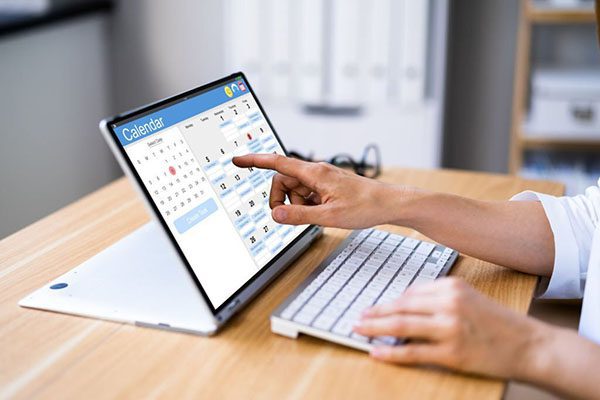
I can say that because I know you. I feel that way about you.
I don’t know why.
It’s your passion. It’s who you are. We see you. I see you. You’ve got a big heart and mission. I want to say thank you for joining us. Thank you for being vulnerable and sharing your truth, so we can see that it doesn’t matter where you are on the journey. We all have the high highs and the low lows. It’s are you willing to get back up again when you go into the low? More importantly, are you willing to grab somebody’s hand with you to get back up?
It’s beautifully said. Thank you so much for having me here, Susie. This was so fun. It’s such an honor to be here. Thank you for inviting me.
You’re welcome. You can follow Debbie on all social media platforms. What are your social media handles, Debbie?
It’s Debbie Hoffman. They’re different in each one of them.
Remember, you’re in business for yourself, not by yourself. If you love this episode, please share it with someone that needs it. Someone needs Debbie, so whoever came into your heart, whoever you thought about, yourself and your community, reach out to Debbie. She’s so generous. She’d love to support you in your community. Don’t try to do this alone. Once you get a system, your world changes around sales. I invite you to reach out to Debbie. I invite you to go follow her on her social media so she can keep pouring into you. We look forward to hearing you, seeing you, and helping you win in the domain of sales and profitability.
Important Links
- Power-Up! Your Follow-Up
- Resources Tab of Power-Up! Your Follow-Up
- Less Annoying CRM
- ActiveCampaign
- Power-Up Biz Quiz
- 4 Secrets to Power-Up Your Sales (Without Being Salesy)
- https://www.Facebook.com/debbieannhoffmanFacebook
- https://www.Facebook.com/powerupyourfollowup/
- https://www.LinkedIn.com/in/debbieahoffman
- https://www.Instagram.com/deborahannhoffman
- https://www.YouTube.com/user/DebbieannHoffman
About Debbie Hoffman
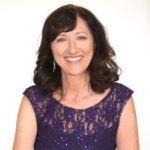 Debbie Hoffman is a heart-centered sales & follow-up expert and founder of “Power-Up! Your Follow-Up.” She works with relationship-driven coaches, and network marketers who are letting potential clients and income slip through the cracks because they don’t have a reliable sales & follow-up system in place. Her proven step-by-step formula supports them to have more ideal clients saying “yes” to working with them.
Debbie Hoffman is a heart-centered sales & follow-up expert and founder of “Power-Up! Your Follow-Up.” She works with relationship-driven coaches, and network marketers who are letting potential clients and income slip through the cracks because they don’t have a reliable sales & follow-up system in place. Her proven step-by-step formula supports them to have more ideal clients saying “yes” to working with them.
